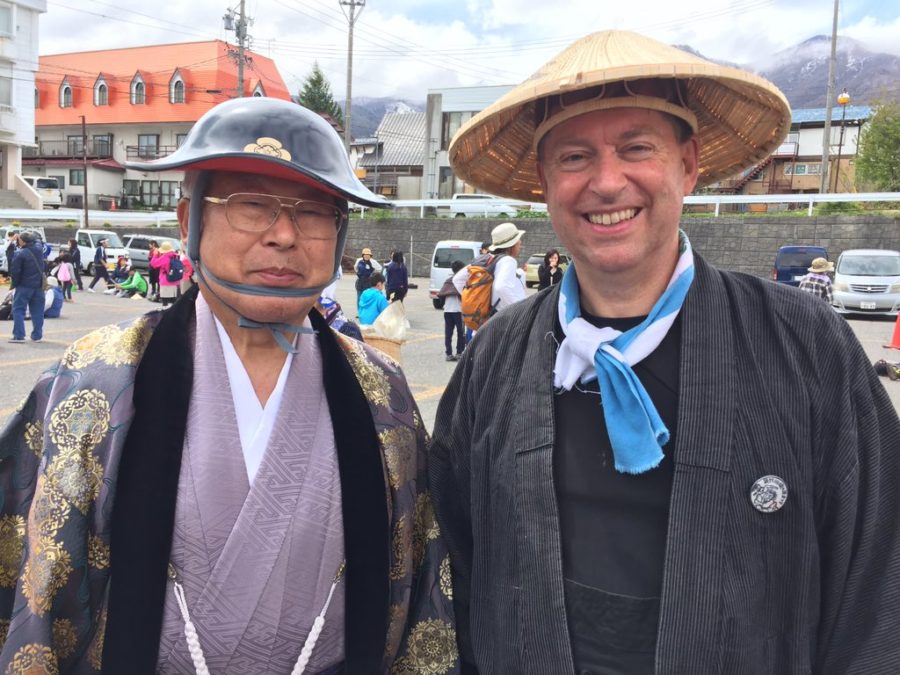21st May 2018 Tokyo, Japan
Salt roads and burning straw – Golden Week in traditional Japan

Japan is a country of matsuri or festivals, usually based around the changing seasons. The “Golden Week” holiday in May, when three public holidays mean that most Japanese take the whole week off, found us in the village of Otari in the Japanese Alps, for the Shionomichi (salt road) matsuri.
Dressed as peasants, though I substituted my wellington boots for the traditional straw slippers, we followed a 9km hike along steep mountain tracks. The festival honours the traditional route by which the valuable commodity of salt was brought from the Japan Sea coast to the inland towns. One of the disconcerting things about hiking in Japan is that you frequently find yourself overtaken by sprightly elder folk bounding up the mountain. Well, in a country which recently boasted the world’s oldest woman (117) and man (112), they’re only hitting middle age in their 70s.
Some of our fellow travellers carried traditional backpacks of wooden frames, with straw panniers containing consignments of salt. The fittest young men, clad only in loincloths despite the fresh spring weather, replayed the role of the express couriers who ran Japan’s ancient toll roads in the Edo period before Japan opened up to the West in the mid nineteenth century.
Otari feels like our second home in Japan. When I lived here 28 years ago we helped to twin it with its namesake Ottery (St Mary) in Devon, which by chance happens to be my hometown. So it’s always nice to come back and meet up with old friends here.
A couple of days later I was invited to take part in noyaki, the traditional way of burning the first growth straw on the mountainside, so that the next growth will be of suitable quality for thatched roofs. You can still find these thatched roofs in rural parts of Japan, though not in as much abundance as in my native Devon. For noyaki you take a blazing bushel of straw, then drag it across the hill in a straight line to set fire to the straw underfoot. The slope was so steep you had to lean far forward to do it and I felt in constant danger of tumbling into the flames. Meanwhile the deputy mayor, a middle-aged 75-year-old, leapt round me like a mountain goat.
Spending time in the Japanese countryside you quickly become aware of the twin phenomena of a declining national population (set to fall by 30 million over the next 40 years) and rural depopulation, as the young continue to move to the cities. The remoter bits of the countryside are littered with abandoned farmhouses, and villages are losing some of their amenities. But Otari is determined to fight back, and an enlightened town council is buying up properties and modernising them to encourage young people to move back in and work in a rejuvenated tourism industry.
You also can’t help noticing how life in the remote mountain areas is a constant struggle against the natural environment. There are vast concrete structures everywhere, millions of tons of it have been poured: to hold back the mountains against avalanches and landslides precipitated by earthquakes; to tunnel long roads through the impenetrable mountains and roof them against heavy winter snow; and to contain the rivers to avoid flooding when the snow melts in Spring. But despite these man-made intrusions, the majestic beauty of the Japanese Alps remains breathtaking. Do visit if you have a chance.